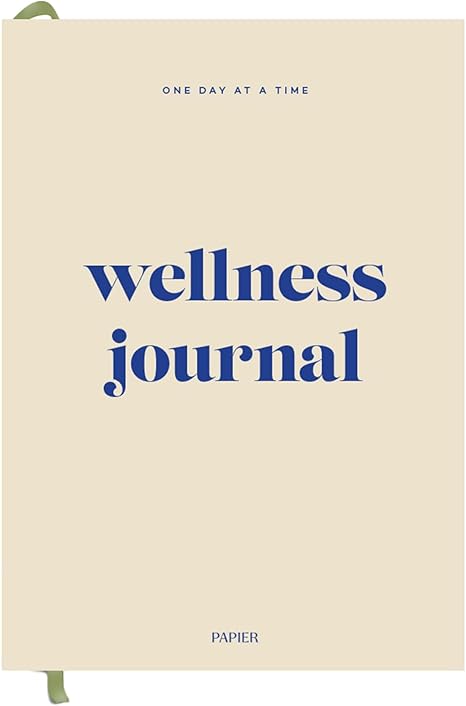“Simple words can touch your soul, showing emotions hidden deep, where only the heart can truly speak.”
Are you hiding in a corner, afraid that someone’s words might touch your heart? You may feel like you’re constantly caught in a whirlwind of emotions.
The fear of being called “soft-hearted” grows to the point where you start isolating yourself, unable to handle any more words from others.
You stop hanging out with friends, distance yourself from family, and avoid people altogether.
If this sounds like you, and your emotions prevent you from enjoying life, it’s time for a change. You can transform your life into a fulfilling and happy one with powerful techniques.
Let’s uncover the secrets to fully enjoying life and turning your emotions into a source of strength.
What It Means to Be Sensitive?
If you believe being sensitive is just a reaction to your surroundings, you must understand what sensitivity truly means and why it exists.
You may be sensitive if you feel emotions like joy, sadness, or frustration more deeply than others. Your senses are heightened, allowing you to notice slight changes in your environment, like a change in someone’s tone of voice or a glance.
Sensitivity isn’t bad; it’s connected to your emotional intelligence and helps you empathize with others and understand their feelings. However, being highly sensitive can also make you more vulnerable to stress and emotional overwhelm.
Research shows that about 20% of people are classified as highly sensitive, which can lead to emotional overload.
🎭 Mindful Thought
Your sensitivity isn’t a flaw; it’s a unique lens through which you experience the world more vividly. Rather than resisting it, ask yourself: how can embracing these emotions help you connect more deeply with others and yourself?
You might find that your sensitivity makes it challenging to handle everyday situations, causing anxiety or exhaustion. But by recognizing and understanding this trait, you can learn to use it as a source of strength instead of viewing it as a weakness.
Reasons Behind Your Sensitivity
Are you wondering what makes you a sensitive person? There could be several factors responsible for your sensitivity; however, below are listed some of the most common ones:
- Genetics
Often, sensitivity is linked to your genes. You may have inherited a nervous system that makes your brain respond more intensely to outside factors.
- Early Life Experiences
According to some research, those who faced stress or trauma as children are more likely to develop heightened sensitivity later. Your brain may have adapted to stay alert to possible dangers.
- Environmental Factors
Another reason could be that you grew up in a nurturing or stimulating environment, and your senses may have developed greater awareness, making you more sensitive to emotional and physical signals.
🎭 Interesting Fact
Your sensitivity might be the result of your brain’s unique wiring, where emotional signals are amplified, allowing you to experience life’s subtleties in a way that others may not.
A study from the American Psychological Association suggests that 1 in 5 people feel they are more emotionally reactive due to both genetic and environmental factors. This may explain why you sometimes feel anxious or overwhelmed without fully understanding why.
Ways to Embrace Your Sensitivity for Personal Growth
Are you viewing your sensitivity as a burden? When managed properly, this trait can enhance your personal growth.
You do not have to suppress your sensitivity; instead, you can use it as a powerful tool for self-awareness and empathy.
Here are the ways you can embrace your sensitivity for personal growth:
Use It for Emotional Intelligence
Your heightened sensitivity makes you more aware of what others need. You can use this skill to build better relationships and communicate well. Emotional intelligence is a helpful asset in both personal and work situations.
- Enhance Creativity
Being sensitive often helps people be more creative because it allows them to see things differently. Many artists, writers, and musicians are highly sensitive, and their creativity comes from feeling emotions deeply.
- Learn Self-Acceptance
Accepting your sensitivity is an important step for personal growth. It’s part of who you are, and accepting it instead of fighting it can lead to a happier life. Understanding your emotions helps you find balance instead of letting your sensitivity take over.
- Empathy as a Strength
Highly sensitive people often feel more empathy. Empathy allows you to connect with others deeply, offering support and understanding. Over time, it can become one of your greatest strengths for personal and social growth.
👉 Pro Tip
Turn your sensitivity into a superpower by using it to fuel your creativity and empathy. When you stop resisting your emotions and start harnessing them, you’ll find they can guide you toward deeper self-awareness and more meaningful connections.
Embracing your sensitivity can unlock your potential, allowing you to grow personally and strengthen your connections with others.
Key Strategies to Manage Your Sensitivity and Emotions
Managing your sensitivity doesn’t mean suppressing it. Instead, it’s about finding healthy ways to deal with life’s challenges while still handling your emotions.
Here are some key strategies to help you manage your sensitivity and emotions effectively:
#1: Practice Mindfulness and Meditation
One effective way to ground yourself when your emotions are overwhelming is through mindfulness. This practice helps you stay focused on the present moment, observe your thoughts without judgment, and reduce the intensity of your reactions. Research shows that practicing mindfulness can lower cortisol levels, the stress hormone, by up to 30% over time, leading to a calmer state of mind.
#2: Set Healthy Boundaries
It can be challenging to say no or set boundaries when you’re sensitive, but it’s essential for your well-being. Pay attention to when you start feeling overwhelmed and take steps to protect your energy. This might include limiting time spent in toxic environments or creating personal space. Establishing boundaries is important for maintaining your emotional health.
#3: Cognitive Behavioral Techniques
An effective method for managing sensitivity is Cognitive Behavioral Therapy (CBT). This approach helps you identify negative thought patterns and replace them with healthier, more positive ones, which can lessen emotional triggers. Research shows that CBT has a 70% success rate in helping people manage anxiety and depression, issues that sensitive individuals often face.
#4: Develop Emotional Resilience
Building emotional resilience means learning how to recover quickly from negative emotions rather than avoiding them. Sensitivity can increase stress, but it also gives you the ability to bounce back. Engaging in activities like meditating, exercising, and spending time in nature can strengthen your emotional resilience. You can practice writing your thoughts in a journal to clarify your feelings and gain insight into your experiences.
#5: Surround Yourself with Supportive People
Sensitive people do best in supportive and understanding environments. It’s essential to build relationships with people who value your emotional depth instead of ignoring it. Research shows that having a strong support network can lower stress and anxiety symptoms by almost 50%.
Bonus Point
Remember, managing your sensitivity doesn’t have to be a solo journey. Seeking out mentors or joining supportive communities can provide the guidance and encouragement you need to navigate your emotional world with confidence.
These strategies will help you manage your sensitivity and emotions for better relationships and self-empowerment.
Conclusion
If you are sensitive, it does not mean that you have a flaw. When you understand and manage it well, it can become one of your greatest strengths.
It’s important to learn about sensitivity and use effective strategies to manage it. This will lead to greater emotional intelligence and resilience. You have the power to turn what you may see as a vulnerability into your biggest asset.
You can live a more balanced and fulfilling life by practicing mindfulness, setting boundaries, and building emotional resilience. This allows you to embrace the emotional depth that makes you unique.
Your sensitivity shows your ability to feel and experience life deeply. It’s not about trying to be less sensitive but about using that sensitivity to support your personal growth and well-being.
“Embracing sensitivity, spreading the lights of joy; embarking the journey, where heart and soul deploy.”
Turn Your Sensitivity into Strength with Real-Life Scenarios to Help You Grow
- Handling Criticism at WorkScenario: You receive feedback from your manager and feel defensive. Instead of reacting emotionally, take a moment to reflect and see it as an opportunity for growth, not a personal attack.
Pro Tip: Pause, ask clarifying questions, and use feedback to improve.
- Feeling Overwhelmed in Social Settings
Scenario: At a party, the noise and crowd make you anxious. Take breaks or find a quieter spot to recharge without isolating yourself.
Pro Tip: Set boundaries for your well-being while still engaging with others.
- Using Empathy in RelationshipsScenario: Your sensitivity makes you more empathetic, which helps you connect deeply with others.
Lesson: Use your emotional awareness to support and listen to others, turning sensitivity into a strength.
- Managing Conflict with FriendsScenario: During an argument, you feel overwhelmed. Instead of withdrawing, listen actively and express your feelings calmly.
Pro Tip: Use conflict as a chance for deeper understanding and personal growth.
- Creativity and SensitivityScenario: Your emotions fuel your creativity but can also lead to self-doubt. Embrace those feelings to enhance your artistic work.
Pro Tip: Channel your sensitivity into creative expression, turning it into your unique edge.
These simple scenarios show that sensitivity, when managed properly, can be your greatest asset for personal and professional growth.





















